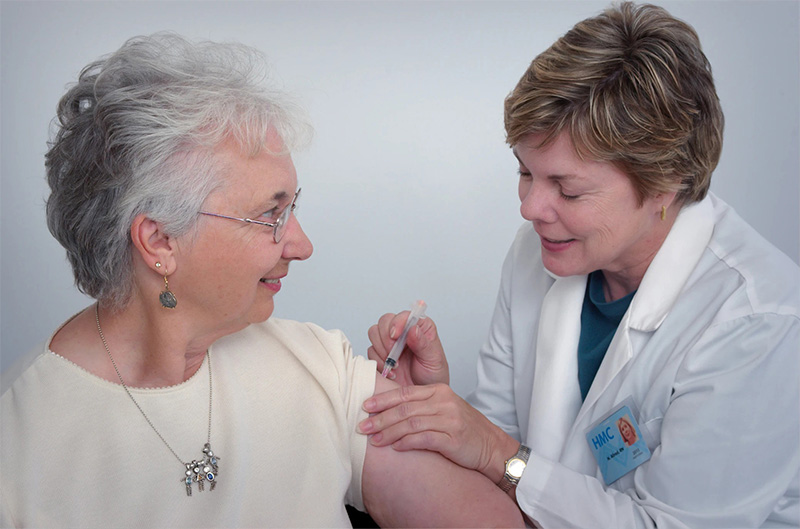By empowering women to better understand their menopause symptoms and the available treatment options, they can be better prepared to work with their doctor to make informed decisions about their care.
Menopause affects virtually all people with functioning ovaries, but the individual experiences of people going through menopause vary widely. From a medical standpoint, menopause is generally treated as a hormone deficiency, and the best-known and most effective medications for menopause are menopause hormonal therapies (MHT), which replace these missing hormones in the hopes of treating common menopause symptoms, such as hot flushes.
However, researchers from the Herbert Wertheim School of Public Health and Human Longevity Science at UC San Diego and other institutions now argue that this hormonal deficiency model of menopause is too one-dimensional and ignores many modifiable factors that could potentially help people dealing with the symptoms of menopause. Moreover, the researchers claim that this model also suggests that menopause is a disease to be cured rather than a normal life stage associated with manageable symptoms.
In a new paper published March 6 in Lancet, they suggest replacing this view with an “empowerment” approach to menopause care – one that focuses on helping patients be equal and active partners in care decisions. The paper is part of a series of Lancet articles addressing the overmedicalization of menopause and offering solutions to the problem.
An empowerment approach to menopause could help women better manage their symptoms.
“MHT is one of several evidence-based prescription medications shown to be effective for treating hot flushes and night sweats,” said first author Andrea LaCroix, Ph.D., M.P.H., Distinguished Professor at the Herbert Wertheim School of Public Health. “There have been too few randomized trials that provide head-to-head comparisons of these treatments so that we can know how effective these treatments are compared to each other, especially among diverse groups of women.”
It will also help women become more informed about these treatments and work with their physician to choose what will work best for them.
“There is no cure for menopause symptoms, and no medication has been shown to resolve all negative experiences during menopause,” added LaCroix. “Commercial interests have influenced how treatments are presented, overshadowing what we really know from randomized trials that might help women make fully informed decisions,”
The World Health Organization defines empowerment as the process by which people gain control over the factors and decisions that shape their lives. In the case of menopause, health care workers can support their patients by validating their experiences and providing balanced and consistent information about symptoms and treatment options if required, encouraging women to discuss their individual preferences to reach shared decisions.
The researchers also highlight how the workplace can help empower people going through menopause. For example, through resources such Menopause at Work, employers can implement evidence-based and practical policies to support their employees including via education, conversations and flexible working hours. The authors also call for more research into misunderstood aspects of menopause, such as early menopause.
While health care providers, employers, and researchers can do more to empower people going through menopause, the authors caution that this will not be enough. They also highlight the need for a substantial shift in the way society at large views midlife and older women, with a greater appreciation of their considerable contribution to society, their skills in the paid and unpaid workforce and how they often care for families across several generations.
By addressing these issues, both in the health care setting and at the societal level, the researchers hope to introduce a paradigm shift in how we understand and manage menopause, where all women have access to realistic and balanced information about menopause and possible experiences, effective treatment as needed and shared decision-making to better equip them to navigate this life stage.
— Miles Martin
